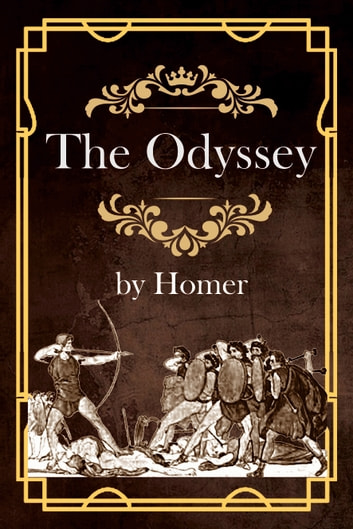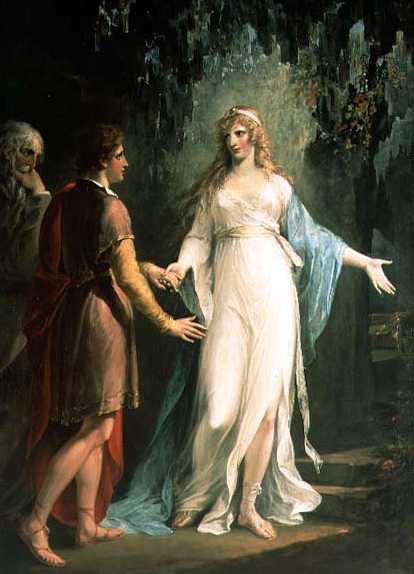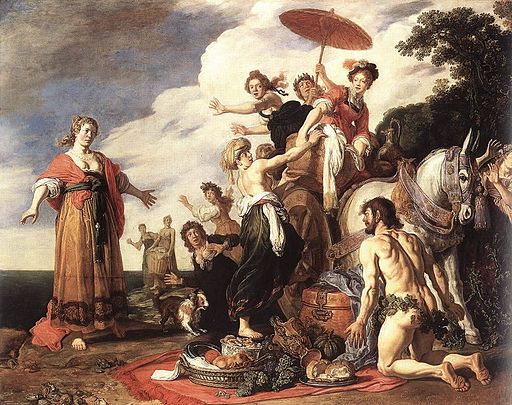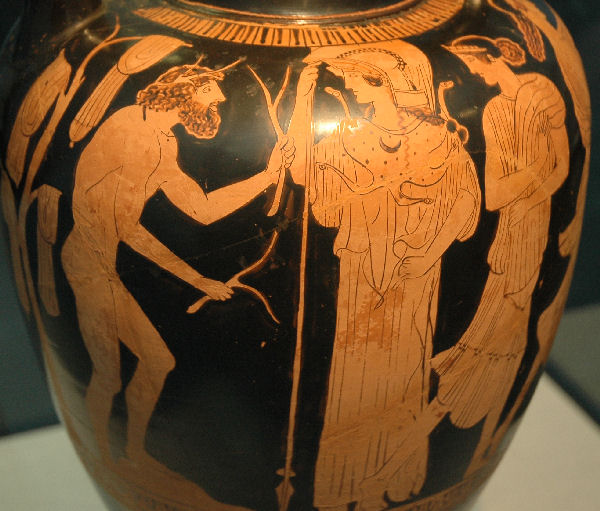
Calypso lives as a goddess of immortality and youth upon the Ogygian island and she entraps and encharms Odysseus until the divine cosmic intervention of Zeus averted her into succumbing this lusty temptation as embellished in these lines, “By then, good bye to him, since no God can evade or thwart the will of Zeus.”
When Odysseys felt homesick remembrances of Penelope haunted him, Calypso’s immortality makes her more superior in her form, stature and appearance compared to Penelope. Odysseus’ choice of being paramoured by this enticement seemed to be foreshadowing Penelope’s susceptibility to time and decay, as metonymic for the realistic human condition he prefers unlike ‘ageless youth’ of Calypso. In this behaviour Odysseus’ choice deprioritizes
idolized beauty.
“A cruel folk you are, unmatched to jealousy? You gods cannot bear to let a goddess sleep with a man, even if it is done without concealment or she has chosen him as her lawful consort.” Calypso become disillusioned by the boorish heraldry of Hermes, the giant slayer and Messenger of God; Zeus, the Lord of Hera and Thunderer doesn’t relish the fact of her conjugal union with Odysseus
and thereby she releases her captive.
Odysseus cannot but be suspicious of villainous trickery of Calypso, who in intercession, chants breathtaking rhetoric, pointing Odysseus’ crafty mind. “What a villain you are to think of such a thing! It shows the crafty way your own mind works.” This happens, however, that the nymph Calypso becomes intensely emotional and elevated with sensational feelings for the hero proclaims in ingenuity of her fairness of being tender hearted soul.
“For I, after all, have some sense of what is fair; and my heart is not a block of iron. I know what pity is!”
Describe the cosmic and divine interventions of the anthropomorphic Gods in Homer’s Odyssey.

Or
Justify Odysseyean narrative in perspectives of man’s responsibility rather than divine malevolence
Or
“The companions yielding to reckless folly invokes the wrath of the Gods. Explain in the light of the commentary.
Or
“That is the God’s work, spinning threads of death through the lives of mortal men…” Explain and justify the perspectives of Alcinous’ speech through the light of divine intervention and cosmic role of gods and goddesses.
Poseidon Lord of the Earthquake and Earth Girdler incites a thunderous rivalry with Odysseus for murdering Cyclops, the mountain giant. In vengeance and vengeful spirits, he shipwrecks Odysseus as manifested by these inferences to these dactylic hexameter, “So I had only to go to Ethiopia for the Gods to
change their minds about Odysseus. And there he is, close to the Phaeacian lands, where he is destined to bring his long ordeal to an end. Nevertheless I mean to let him have his plentiful of trouble yet.” In a nutshell, Poseidon is cast as the blocking force of obstacle or hindrance to Odysseus’ return and to Zeus’ will. Odysseus attributes both destructiveness and helpfulness to Zeus when he
describes the culminating disasters of his travels and the shipwreck off Thrinacia.
Throughout the narratorial omniscience poaching of animals renders
impending doom and life threatening stance. Zeus’ animosity of lightning thunder to strike Odysseus’ ships reflect the divine justice of his companions’ doom and furthermore, Zeus’ prevents Scylla’s reappearance. Both Teiresias’ and Circe’s re echoing of stock advisory imperatives entails foreboding apprehensions with incurring the wrath of Poseidon or Helios’ against killing their sacred cattle:
“And if you yourself contrive to escape, you will come home
late, in evil plight, with all your comrades lost.” Athena aids in the favour of betterment for the future of the Ithacan kingdom and she exclaims, “I knew in my heart”.. “That you would return after the loss of all your companions, but I did not want to fight with Poseidon, the brother of my father, who has put anger in his heart in wrath because you blinded his own son.”
Athena’s magical divinity and wondrous marvels have been a boon for Odysseus’ and Telemachus’ accomplishments. Nestor exclaims after the disappearance of Mentes, that, she [goddess Athena] For never in my life have I seen the Goddesses display such open emotion as Pallas Athena had shown for the championship of Odysseus. For instance, Odysseus was blessed by a divine
showering of radiance by Goddess Athena upon his brine crusted ascension to shores of Scheria from Ogygiaian isles. Arrogant and hubristic beasts such as Cyclops Polyphemus have been bestowed by Zeus’ showerings of torrential downpours for the fertility and productivity of grapes and grains in mountainous caverns, which Odysseus feels loathsome. Nevertheless, Zeus’ retributive justice
to invoke wrathful vengeance in collaboration with Artemis to disenfranchise maidservant for entrapment of Eumaeus is vindictive justification.

Evaluate Nausicaa’s character as a feminist threat of the Homeric epic Odyssey.
Or Explain the significance of Nausicaa’s feminist character in Homer’s Odyssey.
Or
Describe Odyssus’ journey from Ogygia to the island of Scheria and
eventually acquaintanceship with Phaecan princess Nausciaa. Illustrate your answer with references to family, marriage and conjugality.
Or
“Good luck, my friend, and when you are in your own country, you will remember at times, since it is to me, before all others, you owe your life.” Explain the incidents of the episodes at Scherian island with Nausicaa.
Or
Odysseus’ and Nausicaa’s can be considered as unrequited love in
canonical literature. Explain with textual evidences.
Seafaring wanderer Odysseus acquainted himself with Phaeacian princess Nausicaa. If Homer hadn’t intended Odysseus’ eventual homecoming then this folk tale romance would evolved as a ‘tragic artistic blunder’ linking conjugality of Odysseus with the Phaeacian princess Nausicaa in the isles of Scheria. The princess attends neither courtly royal affairs, Phaeacian palace games nor
Odysseus’ eventual departure. Their solitudinous solace of final meeting renders romantic anticipation. Odysseus’ impetus of Phaeacian episode falsehood rechoes to safeguard the image and reputation of the princess in King Alcinous presence. “My lord”, replied the resourceful Odysseus, “your daughter [Phaeacian princess Nausicaa] is not to blame for that [ushering Odysseus
along with her attending maidens’ accompaniment], and I beg you not to take her to task. She did tell me to follow along with the servants. But in my modesty I shrank from doing so, thinking it possible that you might be annoyed at the sight.” [VII 303-307].
Nausicaa’s tactfulness and vigilance in espousal of shipwrecked foreigner Odysseus infers the imminent danger of tarnishing
reputation amidst Phaeacian sailors and noble suitors Princess Nausicaa’s demeanor possesses a considerable appeal to influence Odysseus’ future prospects through the cherishing of a royal wedding and sovereignty of a dukedom.

Nausicaa is a divine deity as envisioned by Odysseus’ in spellbinding
admiration of her grace, beauty and statute. “If you are one of the Gods, it is of Artemis, the daughter of Almighty Zeus, that your beauty, grace and stature most remind me.” [VI 49-52]. Odysseus’ pitiful appeal for a rag to shroud and wrap his nakedness and storytelling of the winds and tempestuous waves of
island of Ogygia ensues within this phenomenal meeting. Even Nausicaa’s is hailed to be a female of wonder and veneration for a seafaring voyager like Odysseus. Furthermore, Odysseus’ prayers for Nausicaa’s future blissful conjugality assures something charismatic. Since home, husband and family will be confounding their enemies and delighting their friends. In the end, Nausicaa’s feminine persuasion, graceful eloquence, charming beauty, youthful
intelligence exalts Homeric artistic triumph and Odyssean resolution.
1. Nausicaa: A Feminist Threat, Authors: Nicolas P. Gross and Nicholas P.
Gross, Source: The Classical World, February 1976, Vol. 69, No. 5, February
1976, pages: 311-317
2. Poor Polyphemus: Emotional Ambivalence In “Odyssey” 9 and 17 , Author:
Rick M. Newton, Source: The Classical World, January-February 1983, Vol. 76,
No. 3, pages: 137-142.
3. The Role of Telemachus In The Odyssey, Author: M.J. Alden, Belfast,
Northern Ireland, Source: Hermes, 2nd Qtr, 1987, pages: 129-137
4. Narrative and Rhetoric To The Odysseus’ Tales To The Phaeacians, Author:
Marianne Hopman, Source: The American Journal of Philology, Spring 2012,
Vol. 133, No. 1, pages: 1-30
5. The Reunion of Penelope and Odyssey, Author: Chris Emlyn Jones, Source:
Greece and Rome, April 1983, Vol. 31, No. 1 , Pages 1-18, Cambridge
University Press On Behalf of The Classical Association
